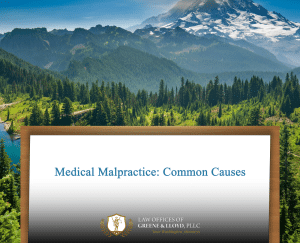## Understanding Economic and Non-Economic Damages
When navigating the complexities of personal injury law, understanding the distinction between economic and non-economic damages is crucial. Economic non-economic damages refer to two categories of compensation awarded to individuals in legal cases. Economic damages are tangible, quantifiable losses that can be easily calculated, such as medical expenses, lost wages, and property damage. Non-economic damages, on the other hand, encompass more subjective losses that do not have a direct monetary value, including pain and suffering, emotional distress, and loss of enjoyment of life.
The proper understanding of these two types of damages can dramatically influence the outcome of a personal injury claim. For individuals who have suffered injury due to someone else’s negligence or wrongdoing, knowing the difference can help in seeking appropriate compensation. Their significance lies not only in the financial recovery but also in the acknowledgment of the suffering endured by the claimant.
Given the legal intricacies involved, it is essential to seek experienced legal counsel to ensure that both economic and non-economic damages are accurately assessed and presented. Attorneys who specialize in personal injury law can effectively navigate these complexities, significantly improving the chances of a favorable outcome for their clients.
## Definition of Economic and Non-Economic Damages
Economic damages are direct financial losses incurred due to an injury, which can include past and future medical bills, lost wages, and other out-of-pocket expenses. These damages are quantifiable and can often be substantiated with receipts, invoices, and wage statements, allowing for an exact measurement of the economic impact on the injured party. Courts generally favor economic damage claims due to their objective nature, as they are usually supported by concrete evidence.
In contrast, non-economic damages are more abstract and pertain to the intangible impact of an injury on a person’s life. These can include pain and suffering—encompassing both physical discomfort and emotional pain—as well as loss of quality of life, mental distress, and loss of companionship. Such damages are challenging to quantify since they do not come with a set price tag; instead, they rely on subjective testimonies, medical evaluations, and the assessment of the affected individual’s lifestyle changes.
The balancing act between economic and non-economic damages often defines personal injury cases. Legal professionals must master the art of convincing a jury or insurance adjuster of the full breadth of loss experienced by their clients, ensuring that both types of damages are fully represented in any compensation claim.
## Importance of Understanding Economic and Non-Economic Damages
The importance of differentiating between economic and non-economic damages cannot be overstated. For individuals pursuing compensation for injuries sustained due to negligence or wrongdoing, understanding these categories aids in accurately portraying their circumstances. This distinction allows for a more comprehensive claim, ensuring that all aspects of the injury and its repercussions are considered.
Moreover, comprehensive knowledge about these damages enhances negotiation power. When victims grasp the full scope of what they may be entitled to, they are better equipped to negotiate with insurance companies or opposing legal teams. Insurers often prioritize economic damages because of their objectivity; however, an effective claimant will articulate the serious impact of non-economic damages through compelling evidence and emotional testimony.
Understanding these damages is also vital in the courtroom setting. Trials often hinge on juries’ perceptions of the plaintiff’s suffering. When attorneys effectively present both economic and non-economic damages, they provide juries with a clearer picture of the plaintiff’s experiences, which can lead to more favorable jury awards.
## The Legal Framework Surrounding Economic and Non-Economic Damages
In Washington State, like in many jurisdictions, the legal framework governing economic and non-economic damages is complex and multifaceted. The laws outline how these damages can be pursued in personal injury claims, establishing the criteria for each type. Economic damages are often straightforward, grounded in clear financial losses sustained due to an injury. These losses must be documented and proven through tangible evidence.
On the other hand, non-economic damages are governed by more subjective legal standards. There are often no caps on economic damages in Washington, but certain limitations may exist for non-economic damages, particularly in medical malpractice cases. The legal standards can be nuanced, and attorneys must stay current on any changes in statutes or case law affecting damage claims.
Additionally, the burden of proof differs between economic and non-economic damages. Economic losses tend to require demonstrable evidence, while non-economic losses rely significantly on narrative and context. Skilled attorneys must weave together these strands of legal framework and evidence to build a solid case that addresses both types of damages effectively.
## Real-World Applications of Economic and Non-Economic Damages
Real-world applications of economic and non-economic damages can often illuminate the substantial differences between the two. For example, consider an individual involved in a car accident. Their economic damages may include hospital bills, rehabilitation costs, and lost income due to injury. Such losses can be calculated to arrive at a specific dollar amount, clearly showing the financial impact of the accident.
In contrast, the same individual may experience significant emotional distress due to the accident, which does not have a direct monetary value. They may struggle with anxiety about driving or develop post-traumatic stress disorder (PTSD). Compensation for these non-economic damages is often derived from discussions with therapists, personal testimony, and expert evaluations of psychological well-being. Juries may consider how the accident has altered the individual’s daily life, emotional stability, and personal relationships.
These examples reinforce why both categories of damages are pivotal in personal injury cases. A successful claim must effectively balance the numerical evidence of economic losses with the compelling narratives of non-economic suffering to ensure that claimants receive comprehensive compensation for their experiences.
## What Steps Can You Take if You Seek Compensation?
If you find yourself in a position to seek compensation for injuries sustained, there are crucial steps you can take to bolster your claim for economic and non-economic damages. First and foremost, it is imperative to document everything related to your injury. Keeping comprehensive medical records, tracking treatment timelines, and maintaining a journal of your experience can provide essential supporting evidence for your claim. This documentation can demonstrate the full impact your injuries have had on your life, both financially and emotionally.
Next, consider consulting a personal injury attorney who can offer insight into the specificities of your case. An experienced attorney can guide you in assessing your damages, take over negotiations with insurance companies, and provide strategic advice on how to present both economic and non-economic damages in your claim. The right legal representation can significantly enhance your chance of securing a favorable outcome.
Lastly, take care to understand the timeline for filing your claim. In Washington State, for instance, the statute of limitations typically limits personal injury claims to three years from the date the injury occurred. Awareness of these deadlines allows you to take timely action, ensuring your claim is filed within the necessary timeframe to prevent forfeiture of your right to seek compensation.
## Common Pitfalls to Avoid When Filing a Claim
Filing a claim for economic and non-economic damages can be a complex process, and there are several pitfalls to avoid to maximize your chances of success. One of the most common mistakes is failing to provide adequate documentation of your injuries and associated costs. Neglecting to keep thorough records of medical visits, treatments, lost wages, and related expenses can severely undermine your case, as insurance companies and court officials require clear evidence to process claims effectively.
Another frequent pitfall is underestimating the value of non-economic damages. Many claimants may focus heavily on medical bills and lost wages, possibly depriving themselves of deserved compensation for pain, suffering, and emotional distress. Articulating the emotional impact of an injury can be crucial, and working with a legal professional experienced in personal injury cases can help ensure that these losses are appropriately represented and valued.
Finally, making statements to insurance adjusters without appropriate legal guidance can be detrimental. Adjusters aim to minimize payouts, and any missteps, leading statements, or admissions of fault can jeopardize your entire case. It’s crucial to seek guidance from an attorney before communicating with insurance representatives to safeguard your rights and maximize your claim’s potential.
## When to Seek Legal Counsel
Knowing when to consult an attorney is critical for individuals seeking compensation for economic and non-economic damages. If you are involved in a personal injury case, it is wise to consider seeking legal counsel as soon as possible, especially if the injury may have severe long-term consequences. The complexities of personal injury law often require specialized knowledge to navigate effectively, making an experienced attorney an invaluable asset in your corner.
Consulting an attorney promptly allows for a thorough evaluation of your case and ensures that evidence is preserved and documented correctly. Legal representation can be particularly beneficial if there are multiple parties involved, or if the insurance company disputes liability, as these situations can complicate claims profoundly. Having a legal professional who understands the nuances of such cases can streamline the process and enhance your position significantly.
It is also important to reach out to an attorney if you receive an initial settlement offer from an insurance company. Many initial offers tend to undervalue the full extent of damages incurred. Legal counsel can offer insights into whether the proposed compensation aligns with the actual losses, helping you make informed decisions about whether to negotiate or accept the offer.
## Advantages of Legal Representation in Damage Claims
There are numerous advantages to having legal representation when pursuing claims for economic and non-economic damages. A skilled attorney can offer the advantage of experience and knowledge, which is invaluable in navigating personal injury claims. Attorneys are adept at assessing the full scope of damages, including quantifiable economic losses and subjective non-economic losses, ensuring that clients receive fair compensation for their suffering and losses.
Moreover, an attorney provides significant advocacy during negotiations with insurance companies. With their understanding of the ins-and-outs of insurance claims and legal tactics, attorneys can counter attempts to minimize payouts and advocate effectively for a fair settlement. Their negotiation skills, combined with a strong knowledge of your case, can yield better financial outcomes than individuals navigating the system alone.
Finally, legal representation ensures a comprehensive strategy for your case. An attorney will gather evidence, interview witnesses, and present your case with clarity and authority, enhancing the likelihood of a favorable outcome. The process of filing claims can often be stressful and overwhelming, and having a professional advocate alleviates some of these burdens, allowing clients to focus on healing while their attorney deals with the legal complexities.
## How Law Offices of Greene & Lloyd, PLLC Can Assist You
The Law Offices of Greene & Lloyd, PLLC, is dedicated to providing top-tier legal representation to clients throughout Washington State. With a deep understanding of the complexities surrounding economic and non-economic damages, our attorneys are well-equipped to analyze your case thoroughly and fight for the compensation you deserve. Our commitment to individual client care ensures that you are not just another case file; we take the time to understand your unique situation and the profound impact your injuries have had on your life.
Utilizing proven strategies and extensive knowledge of personal injury law, we can effectively present both types of damages, emphasizing both their financial and emotional repercussions. We believe in the power of effective storytelling in legal settings, ensuring that the details of your suffering are conveyed compellingly to juries and insurance entities alike.
Furthermore, our firm emphasizes open communication and transparency, making sure that you are informed at every stage of the process. By choosing the Law Offices of Greene & Lloyd, PLLC for representation, you are partnering with a firm committed to securing maximum compensation for your economic and non-economic damages, allowing you to focus on recovery with confidence in your legal team.
## FAQs About Economic and Non-Economic Damages
## Additional Resources for Victims
Navigating personal injury claims can be daunting; however, there are numerous resources available to assist victims in understanding their rights and pursuing compensation effectively. Local legal aid organizations often provide various services, including information on your legal rights, assistance with paperwork, or even free consultations with attorneys. Reaching out to these organizations can be an excellent starting point for individuals seeking guidance.
In addition, numerous online resources offer valuable insights into personal injury law and the nuances between economic and non-economic damages. Websites such as the Washington State Bar Association can provide informational materials, including guidelines on filing claims and understanding local statutes. Various advocacy groups also focus on specific types of injuries, offering tailored resources and support networks.
Furthermore, support groups for injured individuals can be beneficial for emotional support and shared experiences. Connecting with others who have faced similar challenges can provide comfort while contributing to your understanding of what to expect during the claims process. Comprehensive knowledge of available resources can significantly ease the burden for victims and empower them on their journey toward recovery.



